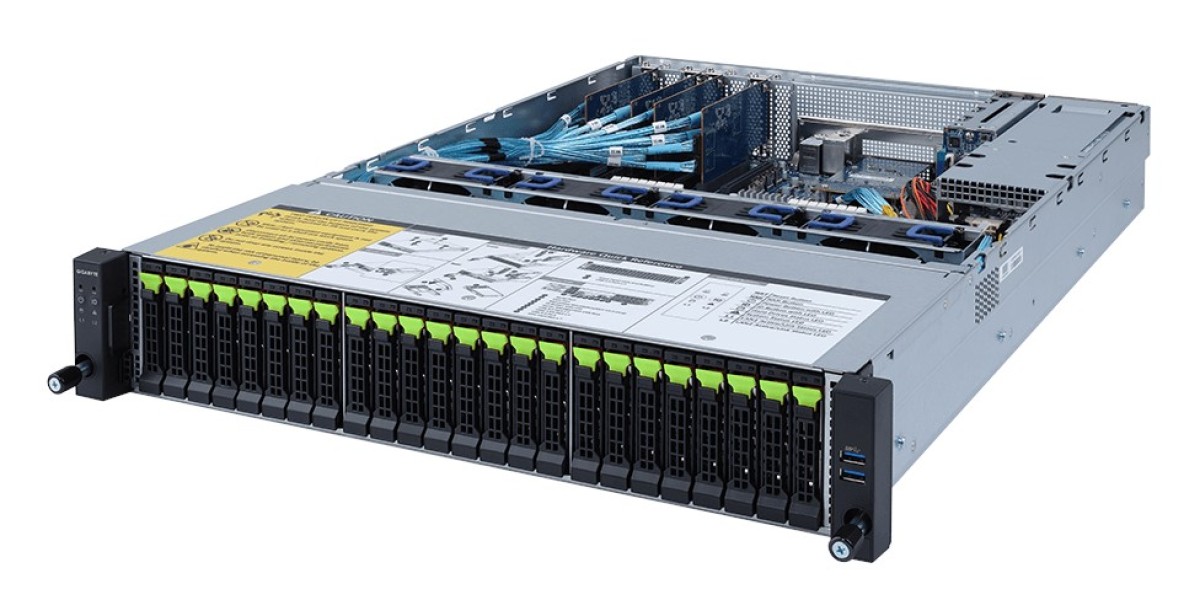Alright, let’s get one thing straight, choosing the right operating system (OS) for your server setup isn’t just some geeky checkbox. It’s the beating heart of your server’s performance, security, and stability. It’s like picking the engine for a race car. You wouldn’t slap a lawnmower motor into a Ferrari chassis, right? Exactly.
From startups to data-hungry enterprises, powerful servers have become the backbone of robust IT infrastructures. But here’s the kicker: without the right OS, even the most high-octane hardware can stumble, bottleneck, or worse, crash and burn. That’s why this guide is all about helping you nail the perfect match between your server and its operating system.
So buckle up we're diving deep into the nitty-gritty, comparing options, weighing pros and cons, and serving up the real-world insight you need to make a killer decision.
Understanding Gigabyte Servers: Built to Perform
Before we wade into the OS waters, let’s take a moment to appreciate what makes Gigabyte Servers such a standout in the crowded server scene.
What Makes Them Tick?
High-performance architecture: From AMD EPYC to Intel Xeon support, they’re built for serious workloads.
Scalability: Whether you’re hosting a small website or running AI applications, these servers scale effortlessly.
Energy efficiency: Designed with green tech in mind, they’re lean, mean, and environmentally clean.
Advanced cooling systems: Hey, no one wants their server turning into a toaster oven mid-workload.
So yeah, Gigabyte Server Systems are the real deal. But if you don’t pair them with the right OS? Well, it’s like putting premium gas into a clunker. Let’s not do that.
What to Consider Before Choosing an OS
Choosing an OS isn’t a one-size-fits-all gig. Different setups need different flavors of software. Here’s what you should be mulling over:
1. Purpose of the Server
Web hosting? Consider performance and compatibility.
Running VMs? You’ll need rock-solid virtualization support.
Database-driven? Think memory management and I/O speeds.
2. Hardware Compatibility
Some OSs play nicer with certain hardware features. Be sure your OS supports the Gigabyte Servers Systems hardware stack—chipset, RAID controllers, network cards, the whole nine yards.
3. Ease of Management
Nobody wants to spend their weekends wrestling with config files or updating drivers manually. Look for OSs that come with intuitive management tools.
4. Community and Support
When the chips are down, forums, documentation, and vendor support can save your bacon.
5. Security Features
Look for built-in firewalls, SELinux, AppArmor, and timely security patches. The digital wolves are always at the door.
The Top Contenders: OS Options for Gigabyte Servers
Now let’s size up the heavy hitters. Each has its quirks, perks, and perfect-fit scenarios.
1. Ubuntu Server – The Friendly Powerhouse
Ah, Ubuntu. The Linux darling that even grandmas could probably install. But don’t let the friendly vibe fool you—Ubuntu Server is an enterprise-grade workhorse.
Pros:
LTS (Long Term Support) versions offer 5+ years of updates.
Extensive documentation and community.
Excellent package management (APT makes life way easier).
Great for web hosting, cloud platforms, and containerization (hello, Docker!).
Cons:
Slightly heavier footprint than minimal distros.
GUI isn’t included by default (but hey, less bloat!).
Best For: Beginners, developers, and teams who want stability and ease of use.
2.CentOS Stream and Rocky Linux – The RHEL-Compatible Contenders
CentOS was once the trusted favorite among server administrators. But with its shift toward CentOS Stream—a rolling-release model—many turned to Rocky Linux as the true heir to the CentOS legacy. Both distributions maintain binary compatibility with Red Hat Enterprise Linux (RHEL), offering a stable, enterprise-grade environment without the RHEL price tag.
Pros:
Enterprise-grade stability.
SELinux for beefy security.
Package manager (YUM/DNF) is solid and dependable.
Loved by sysadmins for decades.
Cons:
Slight learning curve.
Community still adjusting post-CentOS split.
Best For: Enterprises, database-heavy environments, and those needing long-term support.
3. Windows Server – The Graphical Titan
Need to run Exchange, SQL Server, or .NET apps? Say hello to Microsoft’s offering—Windows Server.
Pros:
Intuitive GUI (point, click, done).
Active Directory and domain controller built-in.
Deep integration with Microsoft ecosystems.
Cons:
Licensing can cost a pretty penny.
Resource-hungry compared to leaner distros.
Less transparent compared to open-source options.
Best For: Microsoft-centric businesses, enterprises with legacy systems, and environments needing heavy GUI use.
4. Debian – The Quiet Professional
Debian might not be as flashy as Ubuntu, but it’s the rock-solid foundation many distros are built on—including Ubuntu itself.
Pros:
Lightweight, stable, and incredibly customizable.
Great for long-term, unattended server setups.
Supports most hardware out of the box.
Cons:
Slightly dated packages in stable release (on purpose).
May not be ideal for Linux newcomers due to its complexity.
Best For: Hardcore sysadmins, infrastructure engineers, and those who want full control.
Conclusion
Here’s the bottom line: the “best” operating system for your server setup isn’t some universal truth etched in stone. It’s about fit, purpose, and what kind of IT magic you’re trying to pull off.If you're after cutting-edge performance and flexibility, Ubuntu or Rocky Linux might just be your jam. Want bulletproof virtualization? VMware ESXi has got your back. Need smooth Active Directory integration? Windows Server is the obvious choice.
High-performance server systems are powerful and flexible, don't sell them short with a mismatched OS. Treat your infrastructure like the champion it is by giving it an operating system that unlocks its full potential. For expert guidance and top-tier solutions, partner with Cloud Ninjas LLC your go-to team for making smart, scalable server decisions.








